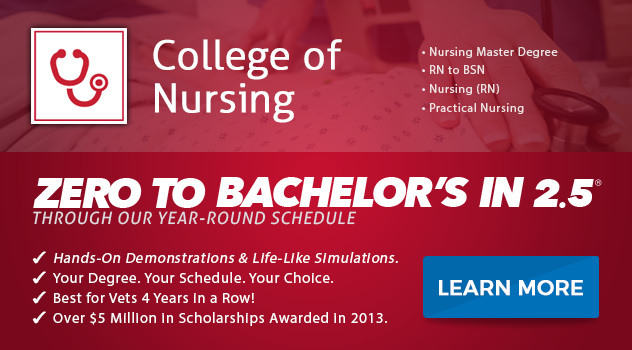
Becoming a Nurse: Here are the Biggest Nursing Trends of 2015!
The world never stands still, and nursing is changing as rapidly as any other field. Demographic, pedagogical, and technological changes are transforming the jobs of registered nurses, providing them with more opportunities and more challenges.
For a successful future in nursing, be aware of the following trends:
The Rise of Nurses
Hospitals need to quickly treat and discharge patients to long-term care centers, outpatient facilities, or their homes. The more nurses that are available to treat patients in these places, the easier it is for hospitals to arrange for those patients' care. Nurses must be trained to treat patients with cancer, Alzheimer's disease, head injuries, and strokes.
Technological advances will also generate changes in nursing education. As medical machinery advances, more nurses will return to school for Bachelor's and Master's degrees. The number of online nursing programs will continue to grow as more nurses seek to continue their education while working.
Popular Pedagogy
Health education isn't just for nurses and doctors. As consumers demand more say in the medical procedures they undergo, it is becoming increasingly essential for nurses to provide them with basic medical knowledge. Often, consumers get their understanding of health and diseases from popular but unreliable websites, leading them to make poor choices. Nurses can counter such misinformation and provide patients with reliable books and websites. In order to do this, however, nurses will have to learn how to communicate complex medical information to patients with no prior understanding.
Accounting for Aging
US citizens are quickly aging, and by the year 2020 more than 16% of the populace will be 65 years old or older. Older populations not only require more healthcare than younger ones but also need different kinds of healthcare. Chronic diseases such as high blood pressure, kidney disease, and diabetes become more likely and more serious in elderly people. Nurses will have to deal with increasing numbers of patients who have many of these diseases at the same time.
An aging population will also place financial strain on hospitals. Fewer people will pay taxes for programs like Medicare while more people will use them, leading to budget deficits and benefit cutbacks. Hospitals will have to learn how to reduce their spending while still providing quality care. This means that innovative nurses who can improve hospital efficiency will be in high demand. Nursing students should consider taking business or economics classes in addition to their health training.
An Ounce of Prevention
One of the most effective ways of cutting costs in the health care industry is preventative care. By encouraging their patients to exercise, eat healthier, and avoid smoking or excessive drinking, nurses can save billions of dollars in long-term treatment costs. Increasingly, nurses will have to focus not just on treating patients but on changing their habits outside of the hospital. Nurses should be able to provide reliable nutrition advice, suggest safe and enjoyable exercise activities, and convince patients to change unhealthy aspects of their lifestyles.
Constant Collaboration
One of the Affordable Care Act's most important provisions seeks to encourage collaboration among healthcare professionals. The more that doctors, PAs, nurses, and medical technicians communicate with each other, the less likely they will be to prescribe ineffective or redundant treatments, ignore relevant health information, or fail to catch their own mistakes. Nurses should become accustomed to interacting with other kinds of healthcare professionals on a more regular basis.
Mobile Mavericks
 Hospitals are increasingly introducing smart phones, tablets, and other mobile devices in order to speed up communication and give practitioners access to patients' health records. This technology will not only make it easier for nurses to treat patients but will also make it easy to protect nurses from being overworked. Hospitals are beginning to use electronic tracking to monitor nurses centrally, making sure that too few nurses are never assigned to too many patients.
Hospitals are increasingly introducing smart phones, tablets, and other mobile devices in order to speed up communication and give practitioners access to patients' health records. This technology will not only make it easier for nurses to treat patients but will also make it easy to protect nurses from being overworked. Hospitals are beginning to use electronic tracking to monitor nurses centrally, making sure that too few nurses are never assigned to too many patients.
To have someone support your dreams feels amazing ... #andimoff #ecpi #rn rastageek you tha… http://t.co/rUohAu2Y9Q
— Freddie (@_Eyesz_) August 26, 2014
Looking to pursue a degree in nursing? ECPI University's College of Nursing is attuned to all the latest nursing trends, preparing you to succeed in the health care field regardless of future changes. Contact ECPI University today to discover how you could earn an Associate in Applied Science with a concentration in Nursing in as little as 16 months. It could be the Best Decision You Ever Make!
DISCLAIMER – ECPI University makes no claim, warranty or guarantee as to actual employability or earning potential to current, past or future students or graduates of any educational program we offer. The ECPI University website is published for informational purposes only. Every effort is made to ensure the accuracy of information contained on the ECPI.edu domain; however, no warranty of accuracy is made. No contractual rights, either expressed or implied, are created by its content.
For more information about ECPI University or any of our programs click here: http://www.ecpi.edu/ or http://ow.ly/Ca1ya.


